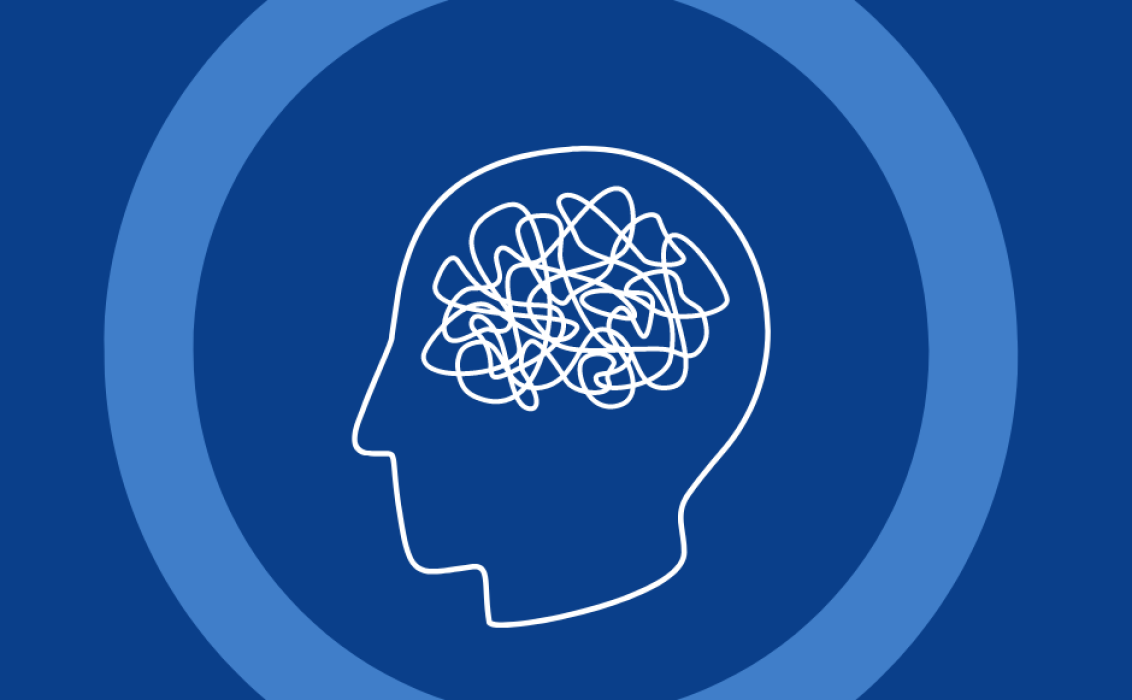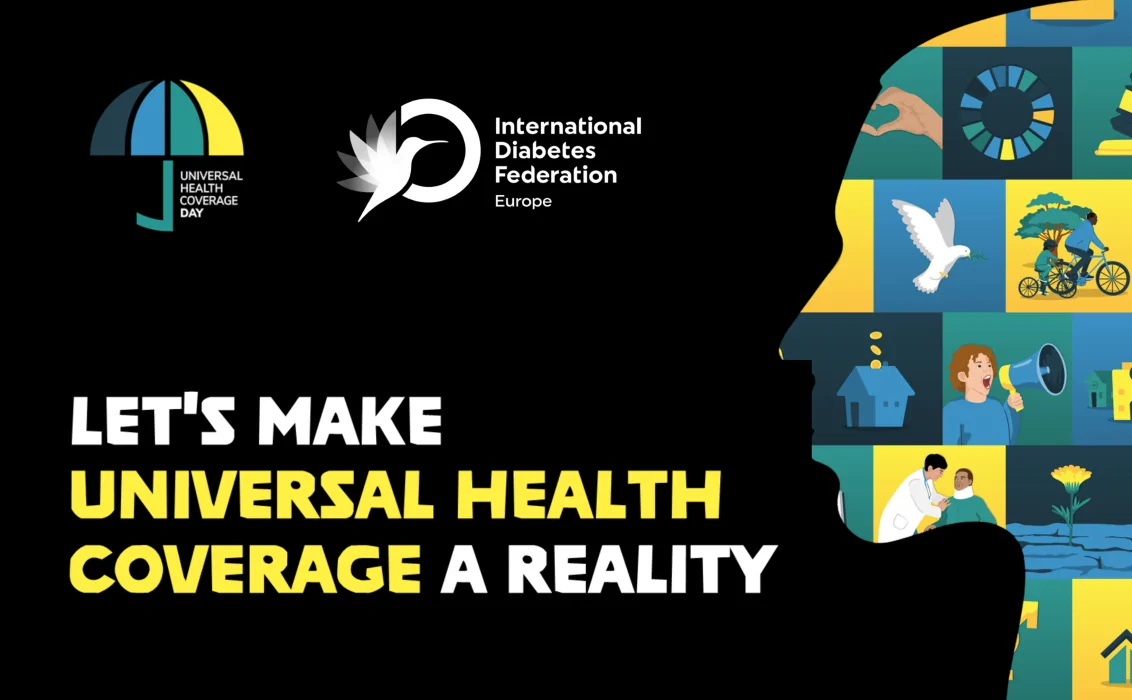In June 2023, the European Commission published its communication on “A Comprehensive Approach To Mental Health”. This proposal consists of 20 flagship initiatives and €1.23 billion in EU funding from different financial instruments. It seeks to support Member States in implementing or improving public health strategies that mainstream mental health across policy areas.
Non-action on mental health leads to significant personal and financial costs that are forecast to rise due to global political and environmental challenges, increased digitalisation and economic instability. Before the COVID-19 pandemic, mental health problems affected around 84 million people in the EU (one in six people), at a cost of more than 4% of GDP across EU countries, equivalent to over €600 billion per year. The COVID-19 pandemic had a strong impact on the mental health of everyone, especially young people and those with pre-existing mental health conditions. People living with diabetes (PwD) across Europe, for example, experienced a worsening of mental health related to anxiety caused by disruptions in access to diabetes care and their healthcare team, constrained ability to exercise and eat healthily due to lockdown measures as well as limited opportunities for peer-to-peer (psychological) support and education. According to a survey conducted by IDF Europe, more than 50% of PwD experienced a deterioration in their mental health and over 40% were feeling very or extremely more anxious during the pandemic.[1]
With its new initiative, the European Commission wants to put mental health on par with physical health and to ensure a new, cross-sectoral approach to mental health issues. The initiative is structured around three guiding principles that should apply to every EU citizen:
- Have access to adequate and effective prevention;
- Have access to high-quality and affordable mental healthcare and treatment;
- Being able to reintegrate into society after recovery.
Funding will be made available to stakeholders through various financial instruments and initiatives. For example, the Commission will allocate €10 million to support the role of stakeholders in promoting mental health in communities focusing on vulnerable groups, including children and young people and migrant/refugee populations. In 2023, the Commission will also launch a call for Member States and stakeholders to submit best practices on mental health promotion, prevention, early detection and early intervention, via the EU Best Practice Portal. The full list of initiatives and financial allocations can be found in the Commission’s Communication.
IDF Europe welcomes the Commission’s determination to tackle the increasing burden of mental health issues on European citizens, health systems and society at large. We also applaud the cross-sectoral nature of the approach, recognising that health issues cannot be addressed within the health system alone and that synergies between policies in the areas of education, youth, environment, employment, sustainable urban development and digital world, among others, are required to improve mental health.
The health outcomes of people living with both NCDs such as diabetes and mental health conditions are influenced by their personal experiences as well as environmental, social and commercial determinants. Better living conditions such as better housing, planning, employment and other social policies will benefit people with all NCDs and mental, psychological and neurological disorders.
We also support the objective of the proposal to improve prevention and early action and welcome the ‘parity of esteem’ principle of the approach by which mental health must be given equal priority to physical health. Mental and physical health often work in a two-way relationship. Mental illness is associated with increased probabilities of physical illness while at the same time poor physical health increases the risk of mental illness.[2]
Diabetes, for example, is a chronic disease that places a huge mental and psychological burden on people living with it, their families and carers/relatives, and which is often neglected. Diabetes requires lifelong, 24/7, self-management by the person living with the condition. In 2014, Stanford University researchers estimated that people living with Type 1 diabetes make an additional 180 health-related decisions every day compared to people without diabetes – that’s equivalent to around one decision every five waking minutes.[3]
Diabetes and mental health issues influence each other in different ways. For example, a recent meta-analysis suggested that adults living with depression have a 37% increased risk of developing Type 2 diabetes.[4] At the same time, PwD who live with mental health conditions can have sub-optimal blood glucose management compared to those without mental illness as optimal diabetes management is contingent on the person’s adherence to stringent self-monitoring, prescribed medications and lifestyle modifications.[5] Therefore, for PwD, the need for good mental health is intrinsic to their ability to self-care and affects their overall health outcomes. Sub-optimal self-management of diabetes can lead to the development of diabetes-related complications and early death in people with chronic mental illness yet the rate of depression is two to three times higher in PwD than in the general population.[6] In another example of this two-way relationship, living with diabetes can increase the risk of psychiatric morbidity and suicide, especially in young people transitioning to adult services.[7] Overall, comorbid diabetes and depression are a significant public health burden and have a major impact on the quality of life of individuals as the consequences of both diseases are worsened by each other.[8]
Actions to support the mental health of people living with diabetes include ensuring that access to adequate psychological support is integrated as a key component of diabetes care. It is also critical to train healthcare professionals in recognising the need for this support and providing them with the tools to deal with this psychological aspect, embedding mental health screening and assessment into diabetes pathways.
Particular focus should be placed on tackling stigma and discrimination associated with both diabetes and mental health conditions, and building more resilient and inclusive healthcare systems and societies. Stigma aggravates the personal and economic impact of mental health, with widespread discrimination against people living with mental health conditions present across social media and in the workplace. Likewise, for PwD stigma hinders prevention campaigns, creates barriers at nearly every step of the way and engenders discrimination beyond the health system – at school, in the workplace, and in many other daily activities. The fear of judgment and discrimination can discourage individuals from undergoing screening, delay diagnosis and negatively affect diabetes management, leading to increased risk of complications and worse health outcomes. Therefore, there is an urgent need to address stigmatisation of both conditions and improve psychological and clinical outcomes for both groups.
For the diabetes community, the new strategic approach to mental health is an important step towards ensuring that no EU citizen is left behind. Improving the mental health of children, young people and vulnerable groups is a key focus of the proposed new approach. We regret, however, that while the Communication defines specific vulnerable groups, it fails to recognise people living with other NCDs, such as diabetes, as a target group that may require specific support or resources, and therefore tailored policy responses according to their needs.
To meet its commitment to supporting Member States in achieving World Health Organization (WHO) targets for non-communicable diseases by 2025 and the Sustainable Development Goals (SDG) by 2030, including mental health, the European Commission must recognise the scale and urgency of targeting the mental health of all people living with chronic diseases such as diabetes and the two-way relationship between the conditions; address stigma and discrimination; ensure social inclusion for both groups, and acknowledge people living with chronic diseases such as diabetes as a high-risk group.
IDF Europe is committed to working with the European Commission and all the relevant stakeholders in recognising and addressing the mental health needs of people living with diabetes as well as the need for early diagnosis of diabetes and management support for people living with mental health conditions, ensuring that all future policy actions help alleviate the mental and psychological burden of living with diabetes and improve people’s quality of life and health outcomes.
Sources:
[1] https://idf.org/europe/media/uploads/sites/2/2023/05/LIVING-IN-COVID-TIMES-Experiences-form-People-living-with-Diabetes.pdf
[2] https://www.centreformentalhealth.org.uk/parity-esteem
[3] https://scopeblog.stanford.edu/2014/05/08/new-research-keeps-diabetics-safer-during-sleep/
[4] https://pubmed.ncbi.nlm.nih.gov/16520921/
[5] https://www.ncbi.nlm.nih.gov/pmc/articles/PMC9699801/
[6] https://www.ncbi.nlm.nih.gov/pmc/articles/PMC4863499/
[7] https://www.ncbi.nlm.nih.gov/pmc/articles/PMC8666467/
[8] https://www.ncbi.nlm.nih.gov/pmc/articles/PMC6016052/



